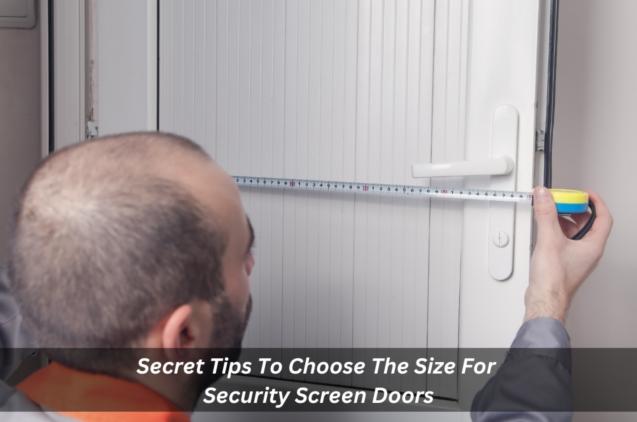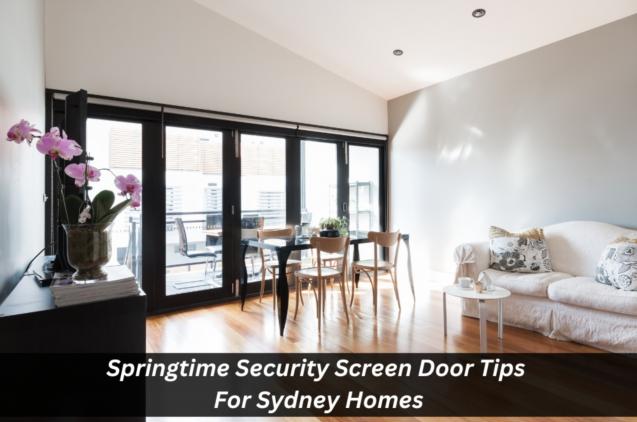
Protect Your Home, Protect Your Peace
This guide will explore several effective ways to secure one's home by understanding its vulnerabilities, adopting security measures that are essential to one, and providing an overall sound home security environment.
Understanding home security vulnerabilities
The first thing one should do before implementing any form of security would be to understand the common vulnerabilities in most homes. This means identifying areas that could be weak or readily accessible to intruders.
Common entry points for intruders:
- Doors: This would include your front and back doors, considered the most accessible entry points that burglars widely use if they do not have good locks or an infusion of reinforcing materials.
- Windows: The most accessible access points are windows on the ground floor or those near fire escapes or balconies.
- Garages and sheds: Garages and sheds are often left unattended, and house tools could be used to break into a house.
Essential home security measures
Protecting the home requires a judicious blend of quality equipment and workable security practices. Some basic home security measures are listed below.
Solid and secure doors and windows
Doors and windows are the first layer of defence in your house. The more quality security you install at the entry point, the more challenging and tedious it will be for intruders to access your home.
- Quality locks and hardware: Locks that are resistant to picking and tampering should be available. Deadbolts and smart locks are good options; they are much safer.
- Reinforced frames: The standard frames are weak and can easily be kicked in during forced entries. When reinforced, the frames around the doors and windows add strength, preventing break-ins.
- Security screens and grilles: In addition to installation, these are complementary to added security by way of a barrier that impedes any person's intrusion while allowing good air circulation and visibility.
Good lighting around the house is one of the best intruder deterrents. Thieves and other criminals generally prefer the dark since they can easily move around without being seen; therefore, increasing the light around your property decreases their chances of targeting you.
- Motion lights: They come on automatically when motion or anything is moving, which will surprise an intruder and make it hard to approach without notice.
- Well-lit pathways: These are pathways to your front door, back door, and garage. In short, they will help you see who is approaching your front door and deter trespassers.
- Security lighting systems: A security lighting system installed around the perimeter of your property illuminates the dark spots of your property and makes it less attractive to intruders.
Integrating your home with modern security systems will help keep it much safer. From alarms to CCTV cameras, these systems are preventive and responsive in terms of security.
- Alarm systems: A well-maintained alarm system acts as a considerable deterrent. Intruders won't readily target homes with alarms, and if an intrusion occurs, the alarm will tell you about it and probably the authorities.
- CCTV cameras: These give a visual record of the activity outside your home and deter individuals from attempting to break in. Place these around main entrances, driveways, and backyards for optimal coverage.
- Smart home technology: Today's security systems often can be tied into smart home technology. This will allow you to monitor and manage your security remotely. You can receive real-time alerts on your smartphone, review security footage, and even lock doors from another location.
Making it known that your home has some form of protection will help dissuade an intruder from attempting to break in. Visual cues around your property can act as a warning to any ill-intentioned individual.
- Security signs: Indicating that a property is under surveillance or an alarm-protected one tends to make intruders think twice.
- Visible security cameras: Visible cameras deter an intruder who would not want to be recorded.
- Trained guard dogs: If suitable for your house, a nicely trained guard dog can act as a considerable deterrent, adding physical security to a psychological one against intruders.
A secure home environment does not need to stop at the front door. Comprehensive security requires securing the entire perimeter and ensuring that your valuables are safe and sound.
Secure your perimeter
Your property perimeter is the first barrier of entry, so make it as secure as possible. Strong fences, evident landscaping, and controlled access points contribute to a much safer home environment.
- Fences and gates: A high, solid wall with a secure gate provides a physical obstacle for unwanted visitors.
- Landscaping: Bushey trees should be trimmed to reduce the amount of places where intruders can conceal themselves. Tall plants near windows or points of entry are a no-no since these provide the criminal with hiding features while seeking to access your home.
- Access control systems: You can fit keypads or even fingerprint scanners to control who enters the premises.
Though security is all about keeping burglars out, it's equally important to protect your house's valuable contents. While a burglary can happen, the damages can be minimised by taking the proper precautions.
- Safes/security boxes: Store vital documents and valued items like jewellery in a safe or lockbox. Ensure that the safe is bolted down to prevent theft.
- Valuables insurance: Not even the best security can rule out eventualities. Full-value insurance will cover your costs against theft or damage and provide additional peace of mind.
Even with a robust security system, there is always room for eventualities. Being prepared to handle such situations, whether a fire, natural disaster, or medical emergency, could prove to be a vital factor in damage control.
- Evacuation plan: Devise an evacuation plan and share it with your family. Rehearse practice drills so that everyone knows what to do in an emergency.
- Emergency kit: Organise a kit containing all essential supplies, such as first aid, water, flashlights, and other vital things.
- Insurance cover: Check your home insurance, which provides cover against theft, fire, or natural calamities.
For those serious about home security, the services of a security professional may prove to be an investment worth making. Professionals can assess your specific vulnerabilities and recommend solutions. Recommendations may include a high-tech security system, improved door and window reinforcements, or advanced lighting systems. Having been in the business, they can advise on formulating an integrated plan that addresses all the potential risks, given one's lifestyle and budget.
Implementing these simple home security procedures can help prevent burglary, vandalism, and other forms of insecurity. After all, a safe home is a happy home. Such steps will protect your belongings and guarantee that you and your family are safe and comfortable inside your home.



